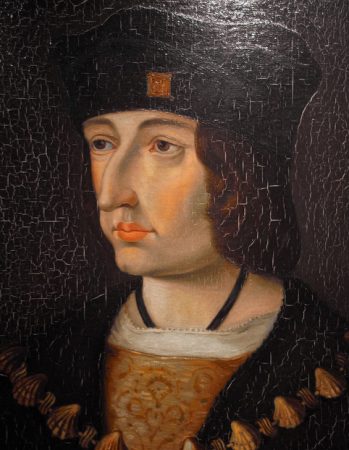
Charles VIII (1470-1498) was a French king of the late 15th century. The eldest son of the conniving, reclusive and unpopular Louis XI, 13-year-old Charles became king in August 1483.
Contemporary chroniclers described the young prince as pleasant and likeable (he was later dubbed “Charles the Affable”). But a few more critical writers suggested he was too flighty, impatient and ambitious to make a wise monarch. Charles was also physically ungainly, an attribute that may have contributed to his death. According to the court official and chronicler Philippe de Commines,
Charles died in his 28th year – after bumping his head while rushing to watch a game of tennis:
“On April 7th, being the eve of Palm Sunday, [he] took his queen by the hand and led her out of the chamber to a place where she had never been before, to see others play at jeu de paume [real tennis] in the castle ditch. They entered into the Haquelebac Gallery… known as the nastiest corner of the castle, crumbling at its entrance, and everyone did piss there that would. The king, though not a tall man, knocked his head [on the door frame] as he entered.”
“It was around two [PM] when he collapsed and he lay motionless until eleven at night… The king was laid upon a crude bed and he never left it until he died, which was nine hours later… Thus died that great and powerful monarch, in a sordid and filthy place.”
Charles VIII died without issue, having lost three infant sons and a daughter to illness in the previous four years. The French throne passed to his cousin, Louis of Orleans, who became Louis XII and ruled for 17 years. As was customary for the time, the new king also married Charles’ 21-year-old widow, Anne of Brittany.
Source: The Memoirs of Philip de Commines, Lord of Argenton, vol. 2, 1497-1501. Content on this page is © Alpha History 2019-23. Content may not be republished without our express permission. For more information please refer to our Terms of Use or contact Alpha History.
